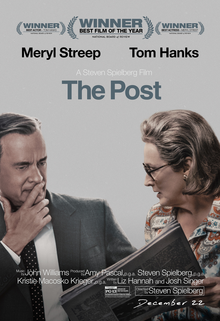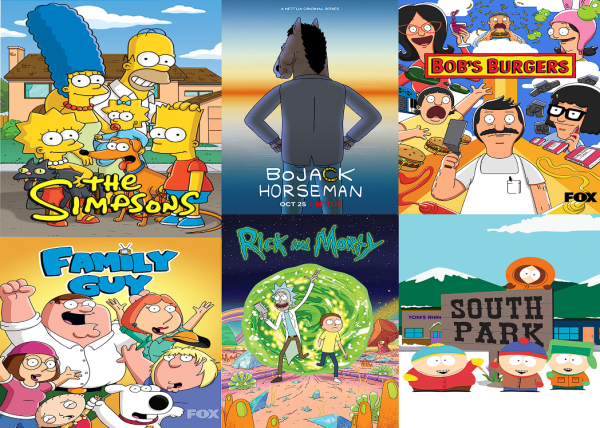Unpostworthy

Cover for the movie The Post. The film was released on Jan. 12.
During the 1970s, journalists ran frantic reporting the confidential scandal involving the government’s secrets surrounding the Vietnam War. During this, brothers, sons and fathers were off fighting, unaware that they were in no position to win, which the Pentagon Papers would later reveal. The Post, directed by Steven Spielberg, was a film following The Washington Post and their discovery of three decades worth of government files that revealed truths about the Vietnam War. The workers risked their careers when they decided to release this information to the deserving public.
The movie had its wide release Jan. 12 and included highly billed actors and actresses like Meryl Streep and Tom Hanks. With five academy awards between the actors, the movie initially was expected to be a top contender for awards and receive a great opening weekend. Unfortunately, an opportunity was lost in terms of execution from script to performance.
A specific story-telling formula seemed to have been a leading force behind this project. The movie started off slowly, but then suddenly sped to the end. The buildup was more of a letdown, with little to no suspenseful or entertaining moments, besides the attempt at humor with a young girl selling lemonade which was a hilarious aspect for the older audience.
Meryl Streep’s character, the sole leading female in the film, demonstrated little power and voice. This made it hard for many viewers to relate or root for her and made the story quite dull, especially considering the movie was thought to be “women empowering.” At the end of the film, she makes the decision to release the Pentagon Papers. This is the only true showcase of power shown by an otherwise immobilized publisher. This was a welcomed relief for the back and forth internal conflict she experienced throughout the film.
The relevance of the release to the current news climate has earned the movie nominations exceeding what this film actually deserves. Although the film earned high ratings and high praise – reviews being posted on the website seem to neglect the first half of the movie and focus solely on the timely release. While the movie attempted to be suspenseful, the dialogue was forgettable and lackluster. The threat of jail and the ticking clock over the characters’ heads seemed insignificant although the plot revolved around it. Although piecing together three decades worth of information over the span of 24 hours is not easy story-telling, none of it felt as important as it should have.
While addressing the events of the 1970s Vietnam War, the triumphant ending and poke at the Watergate scandal did not make up for the drag at the beginning. With few suspenseful or refined moments within the movie, it is the acclaimed cast and director that carries the film to the standard it is being held to within the controversial spotlight of the media. Documentation of the war at the beginning only vaguely gave an idea of the event but was an interesting scene to start off with. Once the scene cut to The Washington Post, the main characters conversations and scenes began the prolonged first half followed by the fast finish to the resolution.
Although some films can get away with being brilliantly simplistic cookie cutter adaptations, The Post unfortunately lacked the foundation in order for this to be a successful film and in the end, it just wasn’t enough. Rather than creating an entertaining and solid narrative, this film lacked in multiple areas resulting in a mediocre, book-report like cinematic experience. It was an unfortunate adaptation of an unfortunate time in history.
Your donation will support the student journalists of Hagerty High School. Your contribution helps us publish six issues of the BluePrint and cover our annual website hosting costs. Thank you so much!










